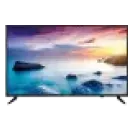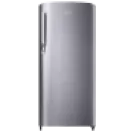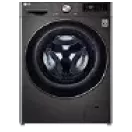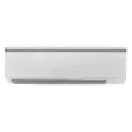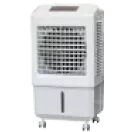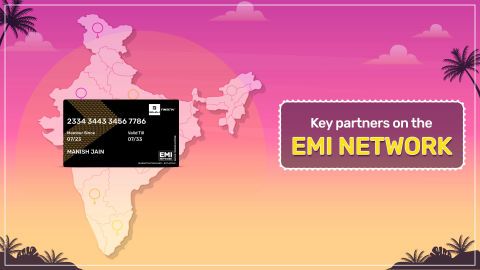When choosing between a 12V and a 24V inverter, understanding your power needs is crucial.
Inverters with a 12V configuration are typically suited for smaller, less demanding setups, making them ideal for homes with lower energy requirements. They are generally more affordable and easier to install. On the other hand, 24V inverters are designed for more demanding applications. They offer greater efficiency and handle larger power loads, which is beneficial for homes or offices with higher energy needs. They also tend to extend battery life and provide better performance under heavy loads. Assess your energy consumption and consider the scale of your setup to determine which inverter best suits your needs.
Key differences between 12V and 24V inverters- Power capacity: 12V inverters are suitable for smaller systems, handling lower power loads efficiently. In contrast, 24V inverters can manage higher power requirements, making them ideal for larger setups.
- Efficiency: 24V inverters are generally more efficient and reduce energy loss during conversion compared to 12V inverters. They also improve battery performance by reducing the current drawn.
- Battery life: 24V systems often extend battery life and require fewer batteries, reducing overall maintenance.
- Installation cost: 12V inverters usually have lower installation costs but might need more batteries compared to 24V inverters.
- System compatibility: Hybrid inverters and solar inverters are available in both 12V and 24V models, but the choice depends on the scale of your solar setup and energy needs.
12V vs 24V inverters: Comparison| Feature | 12V inverter | 24V inverter |
| Power capacity | Suitable for small to medium loads | Handles larger loads more efficiently |
| Efficiency | Lower efficiency, higher current draw | Higher efficiency, lower current draw |
| Battery life | Shorter battery life due to higher current | Longer battery life with lower current |
| Installation cost | Generally lower installation costs | Higher installation costs but fewer batteries required |
| System size | Ideal for smaller systems | Ideal for larger systems |
| Maintenance | May require more frequent maintenance | Generally lower maintenance requirements |
12V inverters are ideal for simpler setups where power needs are modest, while 24V inverters offer improved efficiency and are better suited for more demanding applications. The choice depends on your specific power requirements and budget.
Updated price list of 12V and 24V inverters in India (2025)The latest prices for 12V and 24V inverters in India vary based on brand and features. Expect to find competitive pricing for both types, reflecting advancements and technology improvements in 2025.
| Model (12V inverter) | Price |
| TechSupreme 200W mini inverter | Rs. 583 |
| Luminous power sine 800 pure sine wave 700VA/12V inverter | Rs. 4,649 |
| Luminous Zelio+ 1100 inverter | Rs. 7,099 |
| Luminous eco volt neo 1550 inverter | Rs. 9,549 |
| Model (24V inverter) | Price |
| Microtek energy saver 1825 24V 1300W sine wave inverter | Rs. 8,409 |
| Microtek heavy duty 2350 24V 1600W sine wave inverter | Rs. 10,859 |
| Pulstron 1500VA 24V sine wave inverter | Rs. 11,949 |
| Pulstron 3000VA 24V sine wave inverter | Rs. 24,339 |
Disclaimer: The features, availability, and pricing of each model are subject to change and may vary. For the most accurate and up-to-date information, please visit the official website.
Head to your nearest Bajaj Finserv’s partner store to explore and choose from an extensive range of inverters. You can utilise a limit of up to Rs. 3 lakh to purchase your preferred model and repay the amount over flexible tenures ranging from 3 months to 60 months.
12V vs 24V inverters: Choosing the best option for your needsSelecting between a 12V and a 24V inverter depends largely on your energy requirements and system size. For smaller setups, such as those using a
mini-inverter for limited power needs, a 12V inverter is often sufficient. It provides an economical solution with simpler installation. However, if you require more power or plan to run multiple devices, a 24V inverter is a better choice. It delivers greater efficiency, handles higher loads, and typically extends battery life. Additionally, 24V systems reduce the number of batteries needed, simplifying maintenance. Evaluate your power consumption and future expansion plans to determine which inverter best aligns with your needs, ensuring optimal performance and cost-effectiveness for your setup.
Explore 12V and 24V inverters on EMI with Bajaj FinservBajaj Mall offers comprehensive information on the latest 12V and 24V inverters, helping you find the ideal match for your needs. Once you’ve reviewed all the details, visit a nearby Bajaj Finserv partner store to finalise your choice. With Bajaj Finserv's financing options, you can manage your payments easily. Opt for convenient EMIs and choose a repayment plan that fits your budget seamlessly.
Benefits of shopping with Bajaj Finserv’s financing options- Competitive pricing: Bajaj Finserv partner stores ensure that you get the best value with competitive pricing on 12V and 24V inverters, making your investment cost-effective.
- Easy EMIs: Transform your inverter purchase into a smooth experience with Bajaj Finserv's financing options. Choose a repayment plan that suits your budget and enjoy Easy EMIs.
- Zero down payment: Skip the stress of upfront costs with Bajaj Finserv's zero down payment offers on select inverters. Start your purchase without the initial financial strain.
- Wide selection and convenience: Access a broad range of inverters through Bajaj Finserv’s extensive network. With options available at numerous partner stores across cities, finding your perfect match has never been easier.
- Exclusive deals and cashback: Take advantage of special deals and cashback offers when you use Bajaj Finserv’s financing options for your inverter. Save more while powering up your home.
- Complimentary delivery: Enjoy the convenience of free home delivery on select inverter models, ensuring a hassle-free addition to your energy solution setup.
